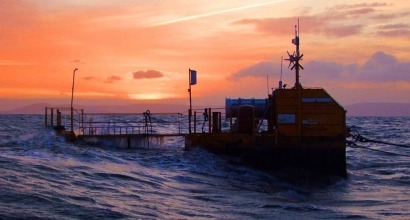
Major barriers exist to the successful deployment and commercialisation of wave energy technology, particularly in the form of difficulties in adapting systems to the changing wave conditions and capturing the potential of every wave. Once a wave device has been designed and constructed, the only means of altering its performance is through its control system. The ability to tune the device can greatly improve the amount of energy captured by the device however control systems designed to capture and utilise wave energy have not yet been able to harness this potential due to the slow response of hydraulic or geared mechanisms.
Trident Energy has now developed control technology that allows for real-time adaptation in order that the potential of every wave can be harnessed. The breakthrough has been achieved in association with the company’s new linear generator, demonstrated successfully at their test facility in Lowestoft, Suffolk.
The announcement represents a major advance for the commercial viability of wave energy in the long term with the potential to achieve significant cost reductions. The technology may also be suitable for other renewable technologies, particularly offshore wind turbines which need auxiliary power. At present offshore turbines utilise diesel generators for this purpose but Trident’s new technology may be able to provide a diverse source of wave-generated auxiliary power, thereby reducing the need for offshore refuelling.
Trident developed the technology in association with a number of British partners including the University of Cambridge, Rockwell Automation, Westbury Control Systems, RJW Engineering and Small & Co. The supply chain was drawn almost entirely from UK companies and Trident intend to continue this policy as the technology is commercialised.
Dr Richard McMahon, Cambridge University Electrical Engineering Senior Lecturer, said that the ability to control the generator in real-time opens up the door for new system control strategies for wave energy devices.
“Following the test at our facility in Lowestoft, Suffolk, and with our UK based partners, today’s announcement shows that the UK is at the forefront of technology development for the global ocean energy industry” added CEO of Trident Energy Steve Packard.
In association with the development of the new technology, Trident Energy has also released two new White Papers, one of them concerning the importance of real-time control for the wave energy sector and the second specifically discussing the benefits of such technology for offshore wind farms.
For additional information:

